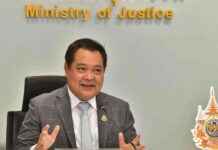Russia carried out a significant missile and drone attack on various targets across Ukraine, including energy infrastructure, as the conflict between the two countries approaches the 1,000-day mark. Ukrainian President Volodymyr Zelenskiy stated that approximately 120 missiles and 90 drones were fired by Russian forces, with over 140 targets destroyed by Ukrainian air defense forces.
The attack resulted in severe damage to several DTEK thermoelectric power plants, marking the eighth large-scale missile strike on the company’s infrastructure this year. As a result, Ukraine’s grid operator had to implement emergency power cutoffs nationwide. Tragically, two individuals lost their lives in Mykolayiv, with additional casualties reported in other regions of the country.
The missile and drone strike in the capital city of Kyiv was the most extensive in three months, according to the military administration. In response to the escalating conflict, NATO-member Poland activated fighter jets and air defense systems near its border with Ukraine. This attack followed a recent conversation between German Chancellor Olaf Scholz and Russian President Vladimir Putin, sparking criticism from Ukrainian Foreign Minister Andrii Sybiha.
With Ukraine facing another winter under the shadow of Russian aggression and significant damage to its energy infrastructure, the return of Donald Trump to the White House adds further uncertainty. While Trump has expressed a desire to broker a swift resolution to the conflict, the terms of any potential agreement remain unclear. Canadian Prime Minister Justin Trudeau supported Scholz’s diplomatic engagement with Putin, emphasizing the need for dialogue to end the war.
The ongoing conflict between Russia and Ukraine underscores the broader implications of geopolitical tensions and the devastating impact of warfare on civilian populations. As world leaders navigate complex diplomatic relationships and seek to mitigate conflict, the human cost of such military actions remains a stark reality. The international community must continue to prioritize peacebuilding efforts and support those affected by armed conflicts worldwide.




















